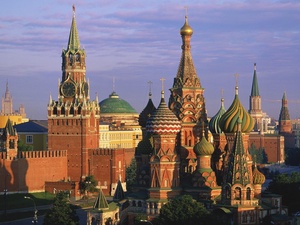In a recent clamp down on so-called “foreign agents,” Russian courts have disbanded two prominent decades old rights groups after the Justice Ministry cited them for seemingly hair splitting violations.
In a recent clamp down on so-called “foreign agents,” Russian courts have disbanded two prominent decades old rights groups after the Justice Ministry cited them for seemingly hair splitting violations.
The first group, called For Human Rights, was disbanded by Russia’s Supreme Court on November 1 because its charter contracted the Russian civic code. The second, an Arctic based rights group called the Center for Support of Indigenous Peoples of the North/Russian Indigenous Training Center (CSIPN/RITC), was dissolved by a Moscow city court on November 7 over what the group’s lawyer called “formalities.”
Both cases have sparked outrage among human rights activists and critics of the Kremlin, who say the courts are being used by the government to stifle critics.
The Justice Ministry had prosecuted the groups under the 2012 “foreign agent” law, which targets non-profit groups receiving even small amounts of foreign assistance. Under the law, such groups are required to voluntarily list themselves as foreign agents, or face heavy fines and, in some cases, closure.
For Human Rights, headed by prominent activist Lev Ponomaryov, was dissolved by the Supreme Court for “breaking regulations” on multiple occasions and refusing to include itself on the foreign agent list. The group was nonetheless branded a foreign agent in February.
In the case of CSIPN/RITC, the group had been listed as a foreign agent by the Justice Ministry in 2015, and had subsequently renounced all foreign sources of funding. The group was founded in 2001 to provide wide-ranging assistance to the peoples of the Russian North, Siberia and the Far East.
The Justice Ministry nonetheless asked the Moscow city court to shut down CSIPN/RITC over “multiple” violations of the foreign agent law. Grigory Vaypan, the group’s lawyer, characterized the court proceedings to Kommersant newspaper as “strange,” and said CSIPN/RITC had been fixing its paperwork to be in compliance with the law.
CSIPN/RITC’s director Rodion Sulyandziga called the ruling “part of a trend to shut down organizations undesirable to the authorities,” Kommersant reported.
“The Arctic and its resources mean a lot to Russian business and its budget. That’s why companies look at indigenous minorities as a barrier to their activities,” Kommersant quoted Sulyandziga as saying.
He called the court decision “vengeance” for his group’s defense of native peoples in the face of industrial development throughout the Arctic.
Vaypan said the group’s liquidation was “an irreversible process, like the death penalty.”
Ponomaryov of For Human Rights vowed to appeal the verdict levied against his group before the European Court of Human Rights in Strasbourg, and said the decision would not stop his group from pursuing its work.
Founded in 1997, the group was Russia’s oldest human rights organization. It had received funding from the Russian government until 2018, Radio Free Europe/Radio Liberty reported. But Ponomaryov said that funding had been cut off as a result of his group’s activities in defense of activists in two high-profile cases.




